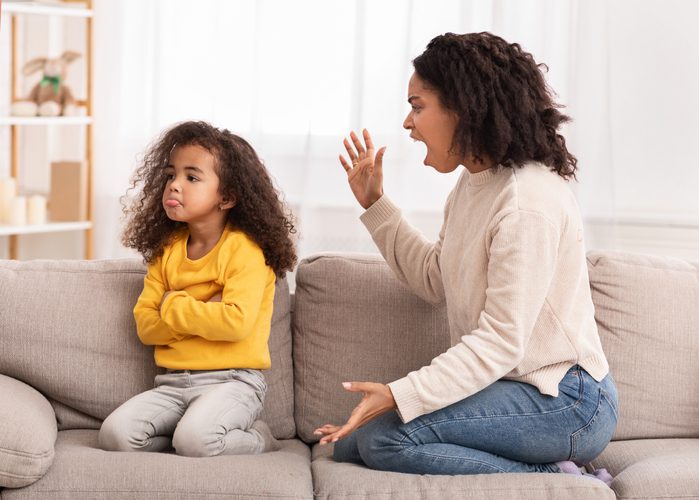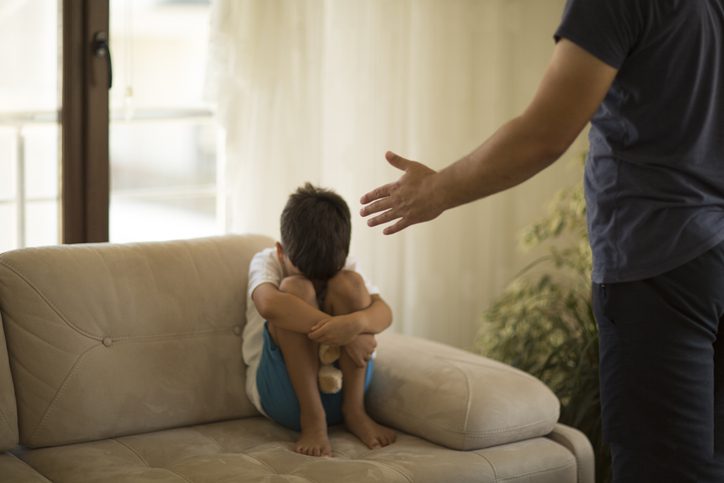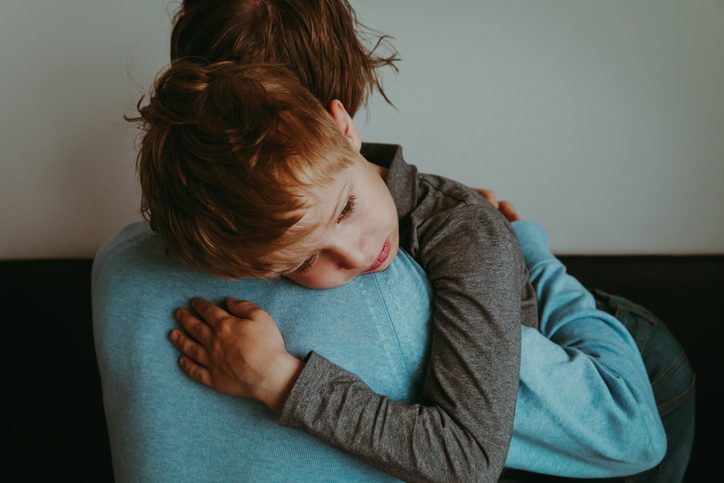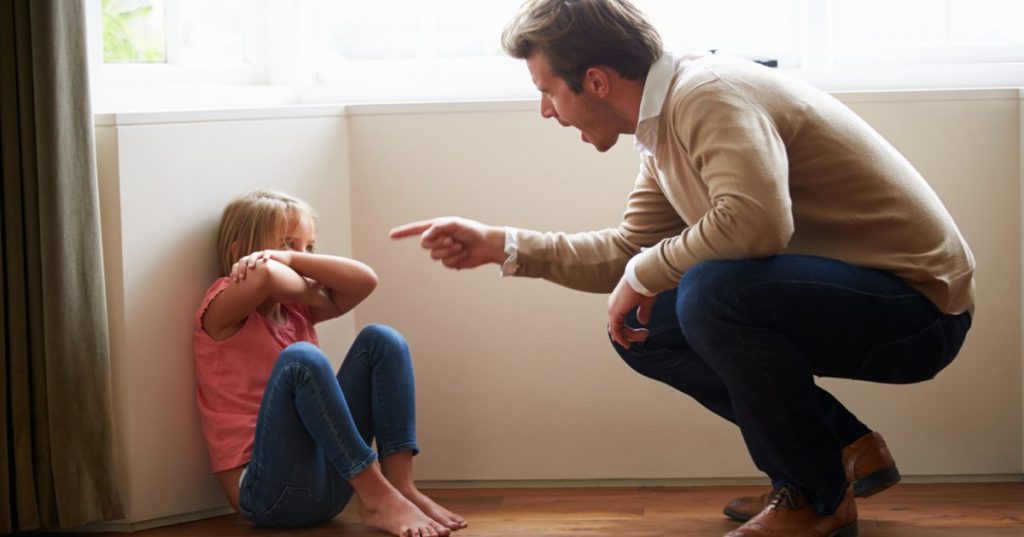Trending Now
For most parents, yelling isn’t something we want to do, or even try to do, but frustrations can boil over and we’re all only human, right?
While that’s totally true and it’s fine to be yourself and occasionally lose your cool with your kids – as long as you apologize afterward – there are several psychological (and practical) reasons why you should do your best to find a different way of communicating your displeasure with your child.

Image Credit: iStock
The first reason to reconsider is this: it doesn’t do any good when it comes to disciplining your children, or getting behaviors to change long term. It’s unhelpful, and according to expert Dr. Laura Markham, can cause lasting psychological damage.
Yelling activates a child’s fight, flight, or freeze response, which actually changes your child’s brain and how it functions.
“Let’s say during a soothing experience neurotransmitters respond by sending out soothing biochemicals that we’re safe.
That’s when a child is building neural pathways to calm down.”
When we yell at our kids, though, those biochemicals do something else.
“The kid releases biochemicals that say fight, flight, or freeze.
They may hit you. They may run away. Or they freeze and look like a deer in headlights.
None of those are good for brain formation.”
Their brain will take those changes and turn them on others, which means you’re setting your child up for failures as far as communication in other areas of their lives.
The second reason to change your outlook is that yelling isn’t communication.
“When parents start yelling at kids, they acquiesce on the outside, but the child isn’t more open to your influence, they’re less so.”
Basically, even if they stop what they’re doing when you yell, you won’t get through to them until you lower your voice.

Image Credit: iStock
Third, you are bigger than your child, and you have complete authority over them – and that means you’re scaring them when you yell.
“They’ve done studies where people were filmed yelling.
When it was played back to the subjects, they couldn’t believe how twisted their facts got.”
If it surprises adults, then think about it from the perspective of a three-year-old child.
Dr. Markham stresses the idea that not yelling doesn’t mean not disciplining, and it doesn’t mean not communicating your displeasure, either.
She suggests that you sit down and work out what triggers you, and remember that your kids aren’t trying to push those buttons, even if it can sometimes seem as if they are.
Before you freak out, remember that you’re raising potential adults, not just kids, and that you’re teaching them how to handle their own problems and relationships for the rest of their lives.
If you can, use humor to teach them what you want them to do instead, and save the yelling for attention-getting moments, like when they’re in potential and immediate danger.

Image Credit: iStock
Remember that yelling shuts down the lines of communication between you, and nothing can be achieved when the person you’re trying to discipline isn’t able to listen.
There you go! Many, many reasons to curb your yelling and almost none to keep it up.
It will be hard, y’all, and we’re definitely going to fail sometimes, but let’s all try to do less yelling and more teaching – I think it will be worth it in the end!






